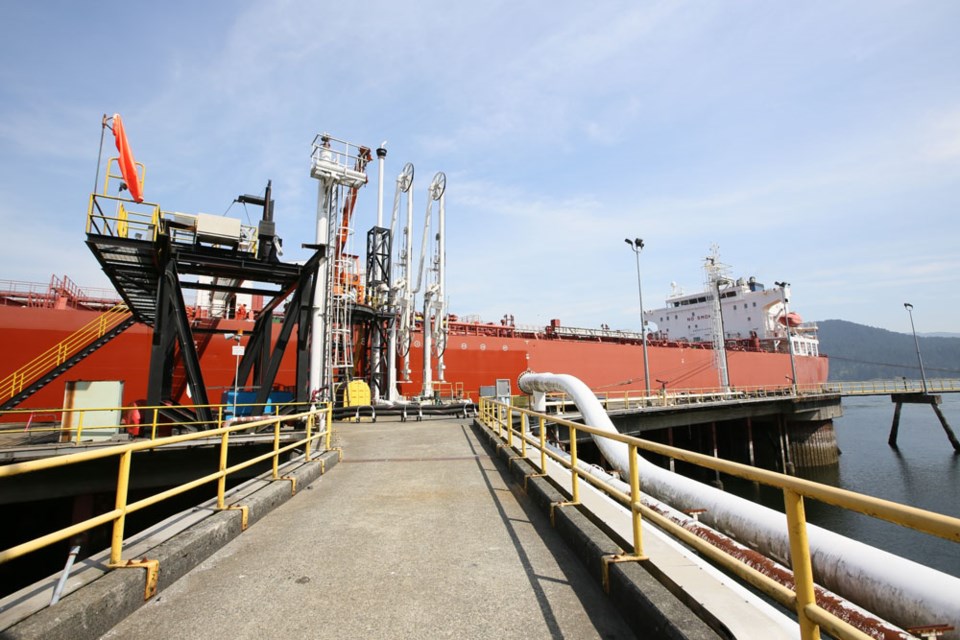Trans Mountain repeatedly broke federal underwater noise limits over several months during construction at the Westridge marine terminal in Burnaby this year, according to a warning letter sent to the company this month from the federal fisheries and oceans department (DFO).
Trans Mountain is said to have exceeded underwater noise limits on multiple occasions in January, February and March while pile driving. Noise above those limits is known to be harmful to fish and other marine animals.
The company also did not file the mandatory monthly construction reports for January, February and March with the Indigenous Advisory Committee (IAC).
Trans Mountain could face prosecution under the Fisheries Act for violating any of these conditions put in place by the DFO as a result of the project’s approval.
The letter, first reported in National Observer last week, was obtained from a source close to the recipient, and later shared with the NOW. The DFO has confirmed its authenticity.
According to the letter, Trans Mountain surpassed underwater noise limits six times on April 3, and again on April 9 and 23, as described in the company’s noise monitoring report. One of the conditions required Trans Mountain to stop work and contact the DFO each time it exceeded the noise threshold, but that did not happen.
“Despite adjusting the mitigation measures after each of the six separate exceedances of the underwater noise threshold, the noise threshold continued to be exceeded after each subsequent attempt,” wrote Tracey Sandgathe, regional manager of the DFO’s fisheries protection program. “Despite failing to reduce noise levels to below the threshold, Trans Mountain nonetheless resumed pile driving after each exceedance.”
The company also went above the noise threshold at the boundary of the underwater work zone in mid-January, but when they continued pile driving again later that month, and again twice in February, they did not measure the underwater noise, according to the letter.
David Safari, vice-president of the Trans Mountain pipeline expansion, responded to the DFO letter on June 12 saying that Trans Mountain “was surprised” to read about incidents dating back to January. The response was posted on Trans Mountain’s website Tuesday.
“At the outset, Trans Mountain writes that it is committed to comply with environmental and regulator obligations, and we are aggressively implementing measures to avoid future non-compliances with the Authorization,” Safari said in the letter. “Trans Mountain firmly believes it has engaged the DFO directly, transparently and collaboratively through ongoing site inspections, information requests (‘IR’) exchanges and required reporting.”
Regarding the noise violations in April, Safari reiterated that the company stopped pile driving each time the noise level was exceeded, and attempted determine the cause and fix any problems.
Safari further blamed noise levels in January and February, in part, on “defective equipment,” and wrote that, in the future, piling will stop until replacement equipment is found.
He also wrote that they did not interpret going above the noise threshold as non-compliance because they had reported when they had exceeded the levels, and made attempts to remediate the problem.
He then pointed out that the company did not receive an information request or site inspection that indicated that DFO was concerned with the company’s approach and asked the DFO to designate an alternative contact or a designated representative to work with them in the future.
Regarding not sending reports to the IAC, Safari said this was an “oversight” and that reports are now being sent to them.



